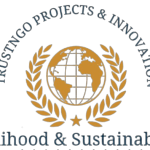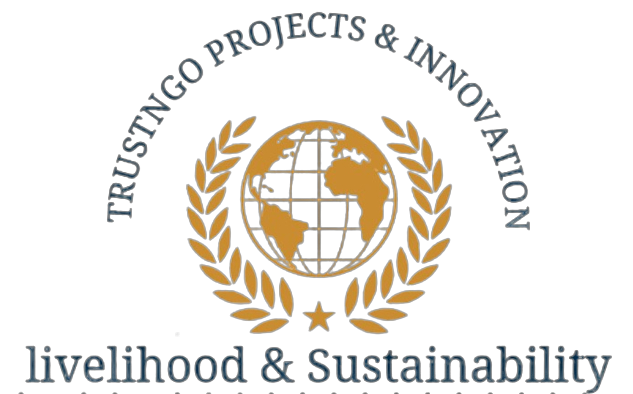I. Building Code Approvals:
- Building Plan & Drawing Review:
- Review architectural and structural drawings for compliance with local building codes (e.g., National Building Code of India, state-specific building bylaws).
- Identify potential non-compliance issues and provide recommendations for corrections.
- Application Assistance:
- Guide clients through the building permit application process with the local municipal corporation or development authority.
- Help compile and submit all necessary documents (site plans, building plans, structural calculations, ownership proofs, etc.).
- Liaison with Authorities:
- Act as a liaison between the client and the building authorities.
- Address queries and facilitate communication during the approval process.
- Inspection Preparation:
- Help clients prepare for building inspections, ensuring their construction site and work comply with approved plans and codes.
- Provide checklists and guidance on inspection requirements.
II. Environmental Clearances:
- Environmental Impact Assessment (EIA):
- Conduct comprehensive EIAs to assess the potential environmental impacts of construction projects.
- Include studies on air quality, water quality, noise pollution, soil impact, biodiversity, and socioeconomic impacts.
- Public Consultation & Stakeholder Engagement:
- Organize and facilitate public hearings and consultations to address community concerns and gather feedback on the project’s environmental impact.
- MoEFCC Application & Approvals:
- Prepare and submit applications for environmental clearance to the Ministry of Environment, Forest and Climate Change (MoEFCC) or the relevant State Environmental Impact Assessment Authority (SEIAA).
- Manage communication with MoEFCC/SEIAA and address any queries during the approval process.
- Compliance Monitoring & Reporting:
- Develop and implement Environmental Management Plans (EMPs) to ensure adherence to clearance conditions.
- Monitor environmental parameters during construction and submit regular compliance reports to MoEFCC/SEIAA.
III. Labor Safety Regulations:
- Safety Audits & Gap Analysis:
- Conduct safety audits to assess compliance with labor safety laws, including the Factories Act, 1948, Building and Other Construction Workers (Regulation of Employment and Conditions of Service) Act, 1996, and other relevant regulations.
- Identify safety hazards and risks on construction sites.
- Safety Program Development & Implementation:
- Develop and implement comprehensive safety programs, including:
- Safety policies and procedures
- Risk assessments
- Emergency response plans
- Accident reporting and investigation mechanisms
- Develop and implement comprehensive safety programs, including:
- Worker Training & Awareness:
- Provide mandatory safety training to construction workers on topics like:
- Hazard identification and control
- Personal protective equipment (PPE) use
- Safe work practices
- Emergency procedures
- Provide mandatory safety training to construction workers on topics like:
- PPE Procurement & Management:
- Advise on appropriate PPE for different tasks.
- Assist in procuring quality PPE and ensuring its proper use and maintenance.
IV. Additional Services:
- Building Information Modeling (BIM) Consultancy: (If you have expertise) Advise on using BIM for design, construction, and compliance management.
- Green Building Certification: Assist clients in obtaining green building certifications (e.g., LEED, IGBC) to demonstrate sustainability.
- Construction Contract Review: Review construction contracts to identify potential compliance risks and ensure legal protection for clients.
FAQs: Construction Compliance in India – The CauseConnect Team
Building Code Approvals:
1. What are building codes, and why are they important?
Building codes are sets of regulations that establish minimum standards for the design, construction, and occupancy of buildings. They are essential for:
- Ensuring Safety: Protecting occupants from fire, structural collapse, and other hazards.
- Accessibility: Making buildings accessible to people with disabilities.
- Sustainability: Promoting energy efficiency and environmentally friendly construction practices.
- Property Value: Buildings that meet codes are generally more valuable.
2. Do I need approval for all construction projects?
Most construction projects require approvals from local authorities (municipal corporations or development authorities). Exemptions may apply to minor renovations or repairs. It’s best to check with your local authority.
3. What happens if I build without obtaining necessary approvals?
Unapproved construction can lead to:
- Stop Work Orders: Authorities can halt your project.
- Demolition: You may be ordered to demolish illegal structures.
- Fines & Penalties: Substantial financial penalties can be imposed.
- Legal Issues: You could face lawsuits for safety violations or damage.
4. How can The CauseConnect Team help me with building code compliance?
We provide:
- Plan Review: We review your building plans for compliance with codes.
- Application Assistance: We help you navigate the permit process and submit required documents.
- Liaison with Authorities: We communicate with officials on your behalf.
- Inspection Preparation: We ensure your project is ready for inspections.
Environmental Clearances:
5. What is an Environmental Impact Assessment (EIA)?
An EIA is a study that assesses the potential environmental impacts of a project. It’s mandatory for many construction projects and helps to identify and mitigate potential harm to air, water, soil, biodiversity, and communities.
6. When is an environmental clearance required?
Clearances are typically needed for projects that have a significant environmental impact, such as:
- Large-scale residential or commercial buildings
- Industrial projects
- Infrastructure projects (roads, dams, etc.)
7. Who grants environmental clearances in India?
The Ministry of Environment, Forest, and Climate Change (MoEFCC) or the relevant State Environmental Impact Assessment Authority (SEIAA) grant clearances based on the EIA report and other documentation.
8. How can The CauseConnect Team assist with environmental clearances?
We can:
- Conduct EIAs: Prepare comprehensive environmental impact assessments.
- Facilitate Public Consultations: Organize meetings and address community concerns.
- Prepare & Submit Applications: Handle the application process with MoEFCC/SEIAA.
- Monitor Compliance: Help you implement mitigation measures and submit compliance reports.
Labor Safety Regulations:
9. What are the key labor safety regulations in construction?
Important regulations include:
- The Factories Act, 1948: Covers worker safety in factories and construction sites.
- The Building and Other Construction Workers Act, 1996: Focuses on the safety and welfare of construction workers.
- Other State-Specific Laws: Various state regulations address worker safety and working conditions.
10. How can I ensure a safe work environment on my construction site?
Key steps include:
- Implement a Safety Program: Develop and enforce safety policies, procedures, and risk assessments.
- Provide Safety Training: Train workers on hazard identification, PPE use, and safe work practices.
- Use Proper Equipment & PPE: Provide and maintain appropriate safety equipment and personal protective equipment (PPE) for workers.
- Regular Inspections: Conduct regular site inspections to identify and address hazards.
- Emergency Response Plan: Have a plan in place for handling accidents and emergencies.
11. How can The CauseConnect Team help me with labor safety compliance?
We can:
- Conduct Safety Audits: Assess your site and practices for compliance.
- Develop Safety Programs: Create tailored safety programs and training materials.
- Assist with PPE Procurement: Advise on and help you obtain appropriate PPE.
12. How can I get started with The CauseConnect Team?
Contact us today to discuss your import/export goals:
- Email: [email protected]
- WhatsApp: https://wa.me/918882301033
- Phone: +91 80762 22021
The CauseConnect Team: Your Partner for Seamless Import/Export Compliance & Success.

